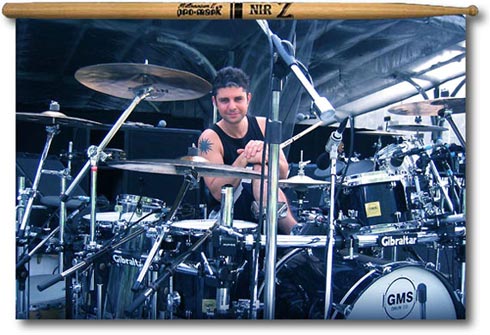- Article
- Read in 1 minutes
Nir Zidkyahu – Interview (26.07.2006)
About ten years ago, Nir Zidkyahu, better known as Nir Z., recorded the drum-takes for the Genesis album Calling All Stations and went on tour with Genesis afterwards. After that he was featured as a drummer on all of Ray Wilson’s studio albums. On the occasion of the new Stiltskin album She, we talked to Nir about his past with Genesis, his work with Ray Wilson and his life…

